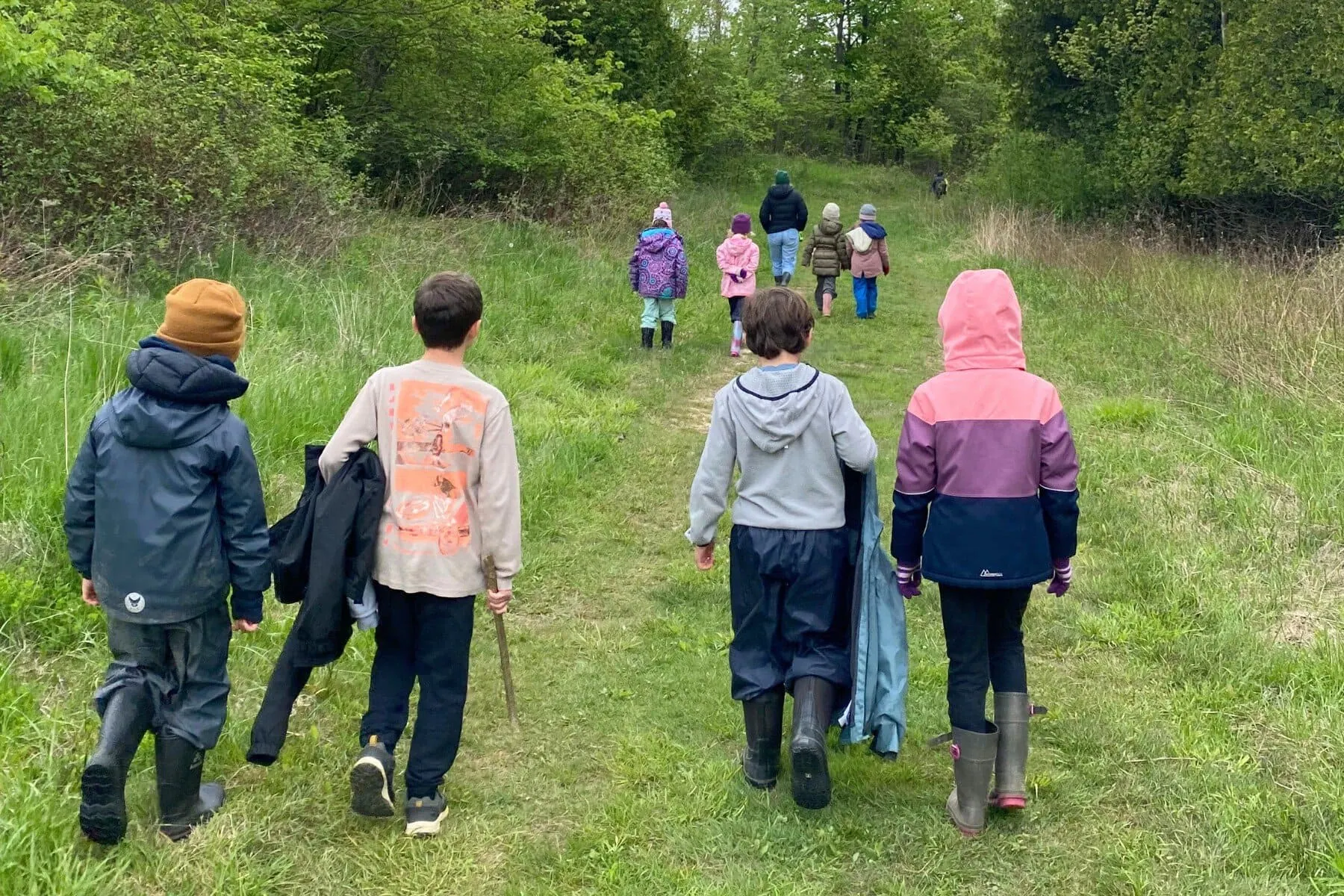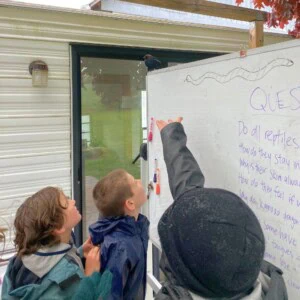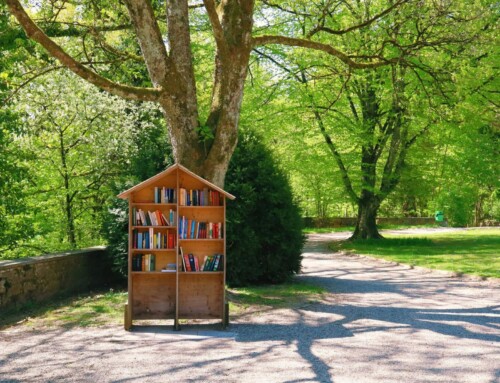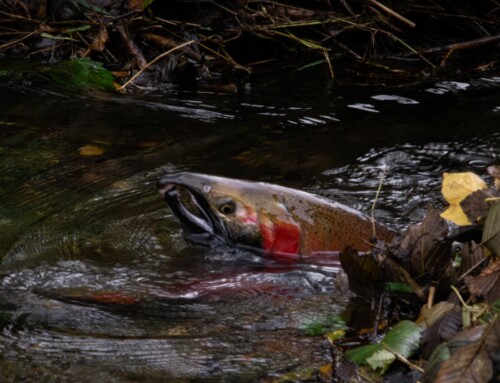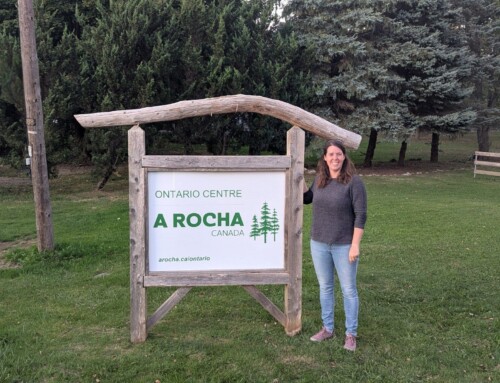The Gift of Proximity: Developing Care for Creation through Envionmental Education
Seasonal Staff Reflection
Written by Rieneke Mischuk, Education Programs Assistant (Summer 2024/25)
Edited by Madison Chafe, Communications and Administrative Coordinator
July 2025
I have spent the last 2 summers working at A Rocha Ontario as an Education Program Assistant. As I reflect on my time here, I realize that the lessons I am learning this summer feel like a neat sequel to those from a year ago. Over the last two months, I have been digging up the roots that produced the fruits I first noticed last summer.
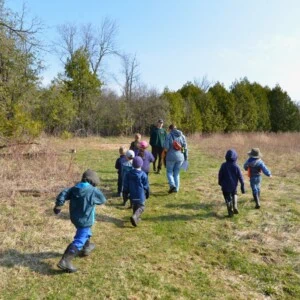 As the Education Programs Assistant in 2024, I worked with my supervisor, Amy Donais, to run the summer term of Nature Academy, a week-long day camp version of A Rocha’s outdoor school. One day, I found myself waiting behind the rest of the group with our littlest camper as he removed a stone from his boot while on a hike. He began to run again after putting his shoe back on, but quickly stopped in his tracks with a huge gasp. I asked him what was wrong, but he seemed so engrossed in looking down at the ground that he ignored me. Finally, he found it: the bug he had felt under his foot as he hurried along. I watched him carefully pick up a stick with his clumsy little hands and move the bug he had stepped on.
As the Education Programs Assistant in 2024, I worked with my supervisor, Amy Donais, to run the summer term of Nature Academy, a week-long day camp version of A Rocha’s outdoor school. One day, I found myself waiting behind the rest of the group with our littlest camper as he removed a stone from his boot while on a hike. He began to run again after putting his shoe back on, but quickly stopped in his tracks with a huge gasp. I asked him what was wrong, but he seemed so engrossed in looking down at the ground that he ignored me. Finally, he found it: the bug he had felt under his foot as he hurried along. I watched him carefully pick up a stick with his clumsy little hands and move the bug he had stepped on.
All told, it was less than a minute between his misstep onto the insect and the moment he kept running, but I reflected on those seconds for a while. This was just one moment of many at A Rocha Ontario, where the attention and love that a kid had for creation truly blew me away. How had he been so attentive that he noticed one little insect underfoot? Where did a five-year-old learn that this should be the proper order of his behaviour, that he should claim responsibility rather than entitlement over creation?
In the year since then, I have continued asking these questions. Is there something you have to “do” correctly to produce children who love the world around them so fiercely? I was astounded by the fruits I saw last summer when I first encountered environmental education (EE), and as I’ve gained more experience in the visionary, programming side of EE at A Rocha Ontario, I have started to feel the roots that might produce those kinds of moments of compassion.
First and foremost, proximity develops children like this. Environmental education gives children the opportunity to see creation up close and learn about the whole spectrum of the experiences it may have from one season or even one day to the next.
I have also been inspired by my coworkers and supervisors in the way they allow children to literally and metaphorically get their hands dirty; being immersed in creation, even when it’s hard. We will sit outside on a rainy day in May and love it, knowing that it is just as beautiful and valuable as a hot July day, even though it is less convenient for us. In fact, on one rainy day at Nature Academy recently, I was standing with my class at the whiteboard on the deck underneath the shelter there by the trailer when suddenly a brown-headed cowbird swooped in and perched on top of the whiteboard. It stayed there for several minutes as we all got a closer look than we ever would have on a sunny day. The rain drove this little critter to seek shelter so that its feathers could dry, and we received the special gift of proximity to it!
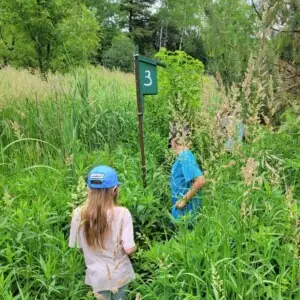 Being near something makes you care for it in some capacity, but I think this care is emboldened when you see that thing struggle, suffer, and experience the harshness of life. I see this so clearly with the nestboxes that we have onsite. I have never seen such raw wonder as I have when watching people of all ages open one nestbox after the other. One nest might have six gangly, fragile chicks climbing over each other, while the other might be empty with broken eggs dashed on the ground in front of it. What better way to articulate the complexities of life!
Being near something makes you care for it in some capacity, but I think this care is emboldened when you see that thing struggle, suffer, and experience the harshness of life. I see this so clearly with the nestboxes that we have onsite. I have never seen such raw wonder as I have when watching people of all ages open one nestbox after the other. One nest might have six gangly, fragile chicks climbing over each other, while the other might be empty with broken eggs dashed on the ground in front of it. What better way to articulate the complexities of life!
To answer my question, no equation will allow you to input certain experiences and produce compassionate children. Although I’m not a parent, in other contexts where I’ve been able to work with kids, I have wrongly believed that honesty and exposure to harsh realities are in opposition to gentle care and protection. I think most of us want to protect the children in our lives from how hard this world can be. However, my experiences at A Rocha have shown me that children are more able to understand and respond to the world’s challenges than I thought before. EE has given me the unique opportunity to use exposure and proximity to equip kids to navigate problems with care, even if it’s just in some small way.
About the Author
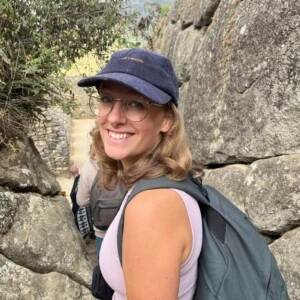 Rieneke Mischuk was one of the Education Programs Assistants in 2024 and returned again for this summer, 2025. This season, Rieneke has spent her time at A Rocha leading field trips, helping with the Dreys (Grade 1- 2) class at Nature Academy, and running Operation Wild programs. She recently graduated from Redeemer University with a degree in Kinesiology and is staying in Hamilton to study Occupational Therapy at McMaster University in the fall.
Rieneke Mischuk was one of the Education Programs Assistants in 2024 and returned again for this summer, 2025. This season, Rieneke has spent her time at A Rocha leading field trips, helping with the Dreys (Grade 1- 2) class at Nature Academy, and running Operation Wild programs. She recently graduated from Redeemer University with a degree in Kinesiology and is staying in Hamilton to study Occupational Therapy at McMaster University in the fall.
Support Environmental Education in Ontario
Help support A Rocha Ontario’s environmental education work by making a donation! Your donation will support our program costs or the cost of enrollment to help more people participate in experiential outdoor education.


